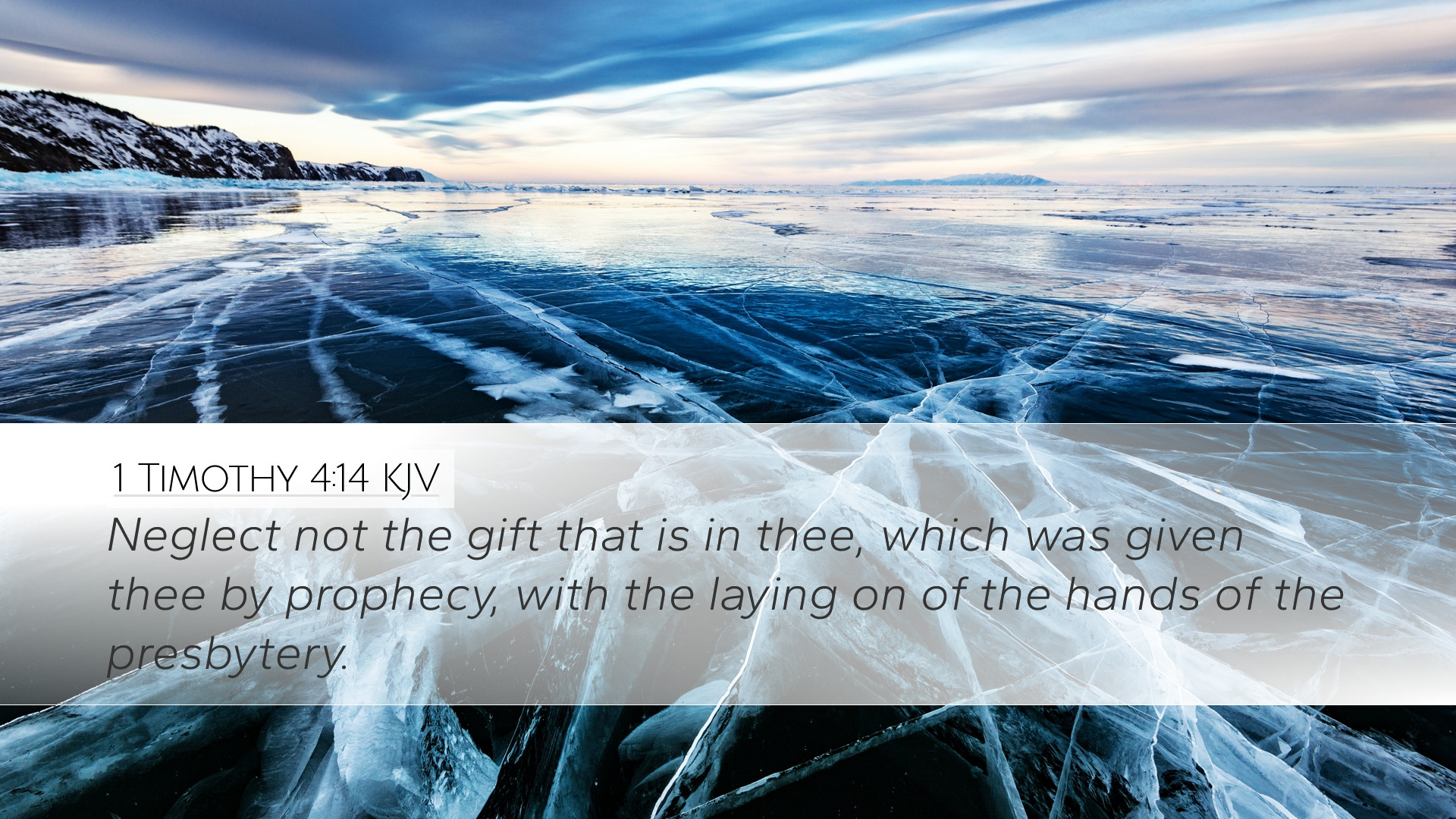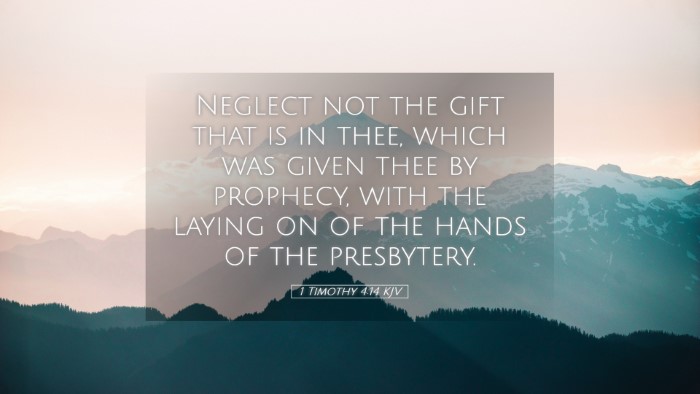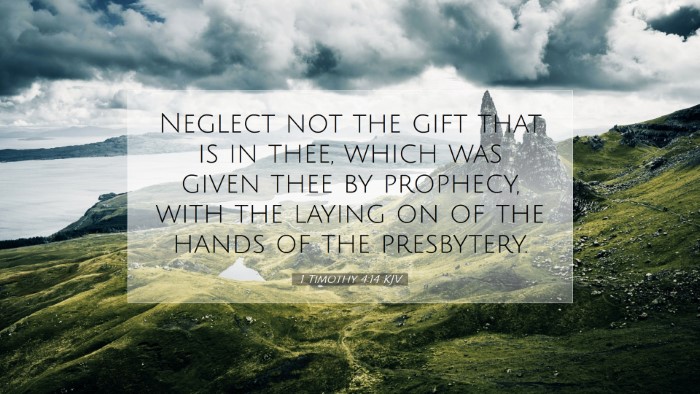Old Testament
Genesis Exodus Leviticus Numbers Deuteronomy Joshua Judges Ruth 1 Samuel 2 Samuel 1 Kings 2 Kings 1 Chronicles 2 Chronicles Ezra Nehemiah Esther Job Psalms Proverbs Ecclesiastes Song of Solomon Isaiah Jeremiah Lamentations Ezekiel Daniel Hosea Joel Amos Obadiah Jonah Micah Nahum Habakkuk Zephaniah Haggai Zechariah Malachi1 Timothy 4:14
1 Timothy 4:14 KJV
Neglect not the gift that is in thee, which was given thee by prophecy, with the laying on of the hands of the presbytery.
1 Timothy 4:14 Bible Commentary
Commentary on 1 Timothy 4:14
Verse: 1 Timothy 4:14 - "Neglect not the gift that is in thee, which was given thee by prophecy, with the laying on of the hands of the presbytery."
Introduction
This verse addresses Timothy's spiritual gifts and the need for their active use. Paul encourages Timothy to recognize and employ these gifts, significant not only for Timothy's personal growth but also for the edification of the Church.
The Importance of Recognizing Gifts
Many commentators emphasize the necessity of recognizing one's gifts. Matthew Henry points out that ignoring such a gift can lead to spiritual stagnation. Gifts are often misunderstood as talents; however, in a biblical context, they are divinely imparted abilities meant for the service of God and His people.
Albert Barnes adds that Paul implies that the recognition and use of Timothy’s gifts were essential for the effective ministry he was called to lead. The phrase “neglect not” indicates a responsibility to cultivate these gifts.
Spiritual Gifts: Their Source and Purpose
Both Paul and Timothy understood that spiritual gifts are not merely for personal enhancement but for the Church’s enrichment. Adam Clarke elaborates that these gifts were imparted to Timothy through the prophetic declaration and the laying on of hands, signifying acknowledgment by the Church leaders of Timothy’s qualifications for ministry.
- The prophetic utterance served as a divine confirmation of Timothy's calling.
- The laying on of hands included the community aspect, showcasing the unity of the presbytery regarding Timothy's gifts.
The Role of Prophecy and the Presbytery
The practice of prophecy has been vital in identifying and affirming Christian leadership. Matthew Henry asserts that prophetic guidance is still relevant, as it provides direction in choosing leaders and recognizing their giftings.
Albert Barnes points out that the presbytery's role highlights the communal aspect of ministry; leadership is not a solo endeavor but requires communion with the church body.
Practical Application of Giftedness
Timothy's ministry would require diligent application of his gifts, which invites broader reflection among pastors and educators. Adam Clarke notes that the gifts must be actively exercised to grow; they can diminish through lack of use.
Moreover, presbyters and leaders should encourage their congregants to recognize, develop, and use their gifts for mutual edification.
- Pastors should create environments where spiritual gifts can be identified and nurtured.
- Encouragement and mentorship should be extended to emerging leaders within the Church.
The Dangers of Neglect
Paul’s warning against neglect serves as a sobering reminder. Matthew Henry warns that failure to engage with one’s gifts results in greater loss than merely the gift itself—it can lead to spiritual decline.
Albert Barnes adds that neglect can also lead to public embarrassment for the church and its leadership, as they may be seen as uncaring or unqualified based on their unengaged members.
Conclusion
1 Timothy 4:14 serves as a clarion call to all believers to recognize their gifts and to actively use them in ministry. The insights offered by Matthew Henry, Albert Barnes, and Adam Clarke provide a robust framework that encourages both individual and collective growth within the Church.


